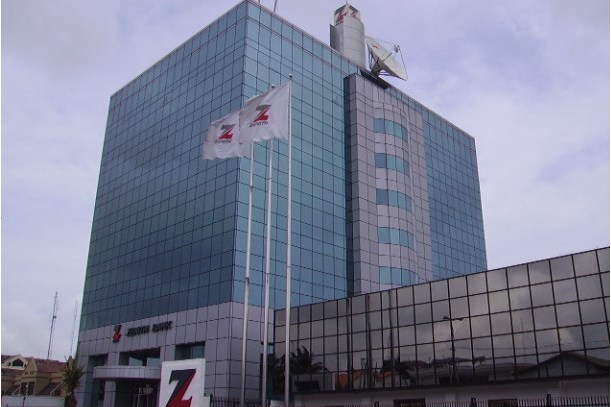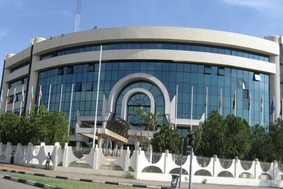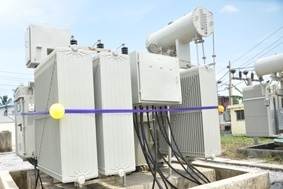Zenith Bank gets Moody’s highest national scale ratings for Nigerian banks

Feature Highlight
Guaranty Trust Bank, Sterling Bank and Bank of Industry received the second highest rating of the NSR categories.
Zenith Bank has been assigned the highest national scale local currency deposit ratings among Nigerian banks by Moody's Investors Service. The New York-based ratings agency also assigned other national scale ratings (NSRs) categories to six other Nigerian banks, namely: Guaranty Trust Bank, Access Bank, United Bank for Africa, First Bank of Nigeria, Sterling Bank and Bank of Industry.
Zenith Bank was assigned Aaa.ng/NG-1 rating, while Guaranty Trust Bank, Sterling Bank and Bank of Industry received the second highest rating of the NSR categories, which is the Aa1.ng rating. Access Bank, United Bank for Africa (UBA) and First Bank of Nigeria Limited were assigned the Aa2.ng rating – the lowest of the three categories.
Moody's NSRs are intended as relative measures of creditworthiness among debt issuers within a country to enable market participants to better differentiate relative risks, the ratings agency said in a statement released last week. NSRs differ from Moody's global scale credit ratings in that they are not globally comparable. The ratings action follows the publication of Moody’s new national scale ratings maps for Nigeria, Kenya and Morocco on October 28th.
Zenith Bank's NSRs are underpinned by the bank’s (1) robust capital buffers, which provide a relatively thick cushion to withstand asset quality deterioration; (2) low stock of non-performing loans (which stood at 1.6 per cent as of June 2016); (3) high liquidity buffers, which compliments a predominantly deposit-funded balance sheet; and (4) a strong and well-established franchise, which allows the bank to attract inexpensive deposits and to lend to high-credit quality borrowers (relative to other Nigerian banks).
Moody's said Zenith Bank’s strengths are partially moderated by the bank's high proportion of corporate deposits versus retail deposits. The bank has a Moody's national scale foreign currency deposit ratings of Aa3.ng/NG-1.
GT Bank’s Aa1.ng/NG-1 ratings are underpinned by the bank’s (1) resilient earnings generating capacity and robust capital buffers; (2) high liquidity buffers; and (3) early adoption of electronic banking platforms, which has allowed it to establish a robust retail franchise. Moody’s said GT Bank’s strengths are partially moderated by concentration risks in the bank's loan book, including to the oil and gas industry (39.2 per cent of gross loans) and loans denominated in foreign currency (55.6 per cent of gross loans). Like Zenith Bank, GT Bank also has national scale foreign currency deposit ratings of Aa3.ng/NG-1.
Moody's said GT Bank has a high level of profitability and capital provide large loss-absorbing buffers, despite the bank's high expore to the oil and gas sector.
Sterling Bank's ratings were due to its low NPLs (2.8 per cent of gross loans) and solid deposit funding base. The bank’s strengths, according to Moody's, are balanced against low foreign currency liquidity buffers, modest capital levels, and concentration risks relating to its loan book (e.g. oil and gas loans are 40 per cenet of gross loans). Moody's assigned A2.ng/NG-1 national scale foreign currency deposit ratings to Sterling Bank.
Bank of Industry was assigned Aa1.ng/NG-1 due to the bank’s robust capital buffers, stable liability structure made up of long-term funding at concessional rates, and tangible improvements to the bank’s governance and risk positioning in recent years. Moody’s said the bank’s ratings strengths are balanced against the likelihood of increased exposure to riskier assets given the bank’s drive to increase loan growth, particularly in the micro, small and medium-sized enterprises (MSMEs) segment.
Access Bank's tangible common equity (TCE) ratio of 13.7 per cent as of June 30, was lower than Zenith Bank's TCE ratio (16.1 per cent) and GT Bank's (18 per cent), according to Moody's. TCE is a measure of the financial soundness of banks, enabling investors to evaluate their investments. Access Bank was assigned the lowest rating of the three NSRs categories (Aa2.ng/NG-1 rating). Nevertheless, Moody’s noted the bank’s low NPLs of just 2.9 per cent as of June 2016 and robust liquidity buffers.
The ratings agency said Access Bank’s strengths are balanced against concentration risks in the bank's loan book, including to the oil and gas industry (28 per cent of gross loans) and loans denominated in foreign currency (49.5 per cent of gross loans), the ratings agency said.
UBA was assigned a TCE ratio of 14 per cent but the bank's NSRs (the lowest of the three categories) capture its resilient asset quality profile, low NPLs of just 2.4 per cent and a predominantly funded balance sheet, which is supported by its Pan-African franchise.
First Bank received A2.ng/NG-1 rating, driven by the bank’s high and resilient pre-provision profitability, stable, deposit-based funding, and high liquidity buffers in local currency. Moody's said FBN’s strengths are, however, balanced against the bank’s high NPLs (23 per cent of gross loans as of June 2016) and high proportion of foreign currency lending (50 per cent of gross loans).
Moody's said the NSRs may change if the sovereign is upgraded and the national scale map is recalibrated but the corresponding global scale rating (GSR) is unaffected. Moody's also said even if Nigeria's sovereign rating is downgraded from current B1, there will be no recalibration of the country's NSR maps.
According to the ratings agency, NSRs may also face pressure due to changes in creditworthiness that are not sufficient to cause a change in the corresponding GSR. If the banks' corresponding GSRs are upgraded or downgraded, their NSRs will also face upward or downward pressure.
Other Features
-
At 50, Olajide Olutuyi vows to intensify focus on social impact
Like Canadian Frank Stronach utilised his Canadian nationality to leverage opportunities in his home country of ...
-
Reflection on ECOWAS Parliament, expectations for the 6th Legislature
The 6th ECOWAS Legislature must sustain the initiated dialogue and sensitisation effort for the Direct Universal ...
-
The $3bn private credit opportunity in Africa
In 2021/2022, domestic credit to the private sector as a percentage of GDP stood at less than 36% in sub-Saharan ...
-
Tinubunomics: Is the tail wagging the dog?
Why long-term vision should drive policy actions in the short term to achieve a sustainable Nigerian economic ...
-
Living in fear and want
Nigerians are being battered by security and economic headwinds. What can be done about it?
-
Analysis of the key provisions of the NERC Multi-Year Tariff Order ...
With the MYTO 2024, we can infer that the Nigerian Electricity Supply Industry is at a turning point with the ...
-
Volcanic explosion of an uncommon agenda for development
Olisa Agbakoba advises the 10th National Assembly on how it can deliver on a transformative legislative agenda for ...
-
Nigeria and the world in 2024
Will it get better or worse for the world that has settled for crises?
-
The Movers and Shakers of Nigeria 2023
This special publication profiles 25 people and institutions based on their societal or industry impact in 2023.
Most Popular News
- IFC, partners back Indorama in Nigeria with $1.25 billion for fertiliser export
- Ali Pate to deliver keynote speech at NDFF 2024 Conference
- Univercells signs MoU with FG on biopharmaceutical development in Nigeria
- CBN increases capital requirements of banks, gives 24 months for compliance
- CBN settles backlog of foreign exchange obligations
- Nasdaq Dubai welcomes $600m sukuk listing by Islamic Development Bank












